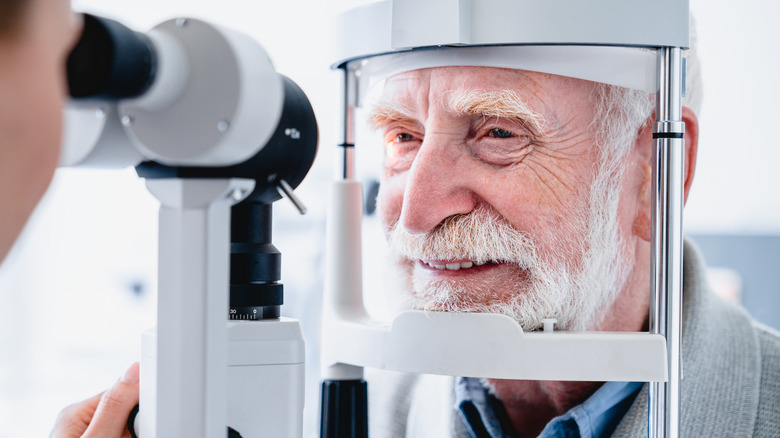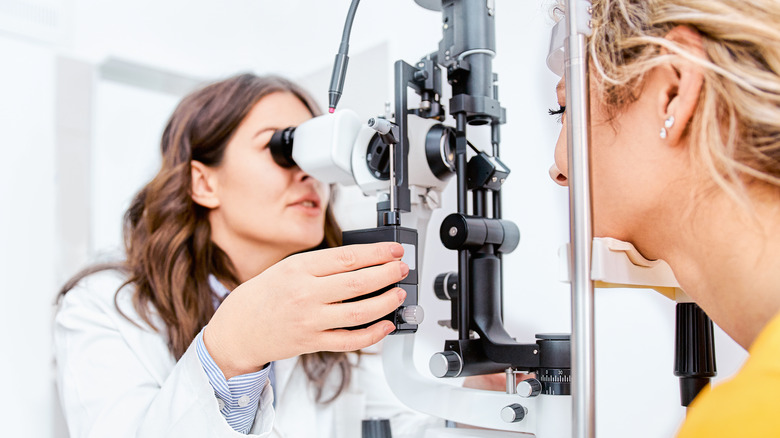What To Expect When You Go For A Glaucoma Test
In order to stay on top of your eye health, your doctor may recommend regular glaucoma tests, especially if you're over the age of 40, according to the Cleveland Clinic. Even if you're under 40 years old, you might need a glaucoma test if you experience any vision problems like blurriness or eye pain. While it might seem daunting, a glaucoma test is actually quick and painless.
Glaucoma is an eye condition that occurs when the optic nerve gets injured (via WebMD). Blockages in the eye lead to fluid buildup, which creates pressure called intraocular pressure. This pressure increases over time, which harms the optic nerve. Glaucoma can cause permanent vision loss, but symptoms sometimes aren't present or don't show up until the disease has progressed too far. Symptoms include hazy vision, redness in the eyes, seeing halos around lights, and eye pain. You're more at risk if you have a family history of it, are diabetic, suffer from high blood pressure, or are of African American, Irish, Russian, Japanese, Hispanic, Inuit, or Scandinavian descent.
Early intervention is important
Detecting glaucoma early can help prevent total vision loss, as treatment can slow its progression (via Cleveland Clinic). When you go for a glaucoma test, you'll be treated by an ophthalmologist, which is a specialized doctor that focuses on preventing, diagnosing, and treating eye disorders. They may do one test or a combination of tests to look inside your eye. The doctor might numb your eye with drops and use special instruments to check your eye pressure, your eyes' drainage systems, the thickness of your cornea, and the optic nerves. Some tests involve touching the eye and others just require images taken of the eye tissue. However, if the doctor needs to dilate your pupil, you may have blurry vision after the test.
The American Academy of Ophthalmology (AAO) recommends that people who are at risk for glaucoma, which are those between 40 to 54 years old, get a complete eye exam, including a glaucoma test, every one to three years. For those 55 to 64 years old, it's recommended every one to two years, and for those 65 and up, it's encouraged every six to 12 months.


